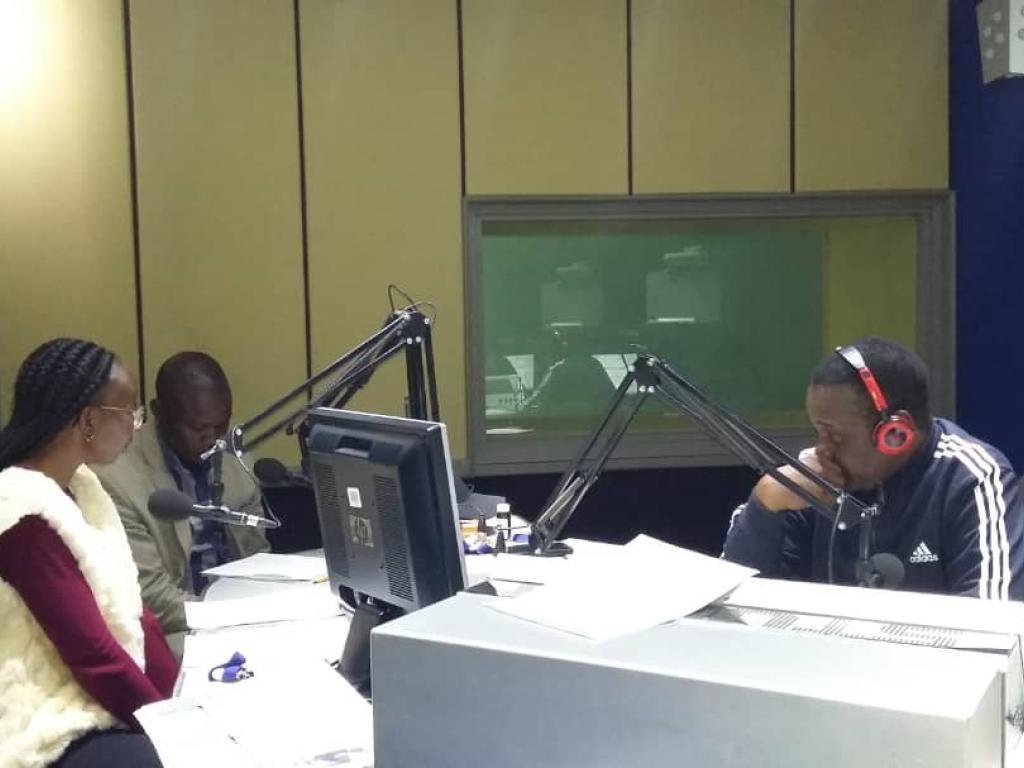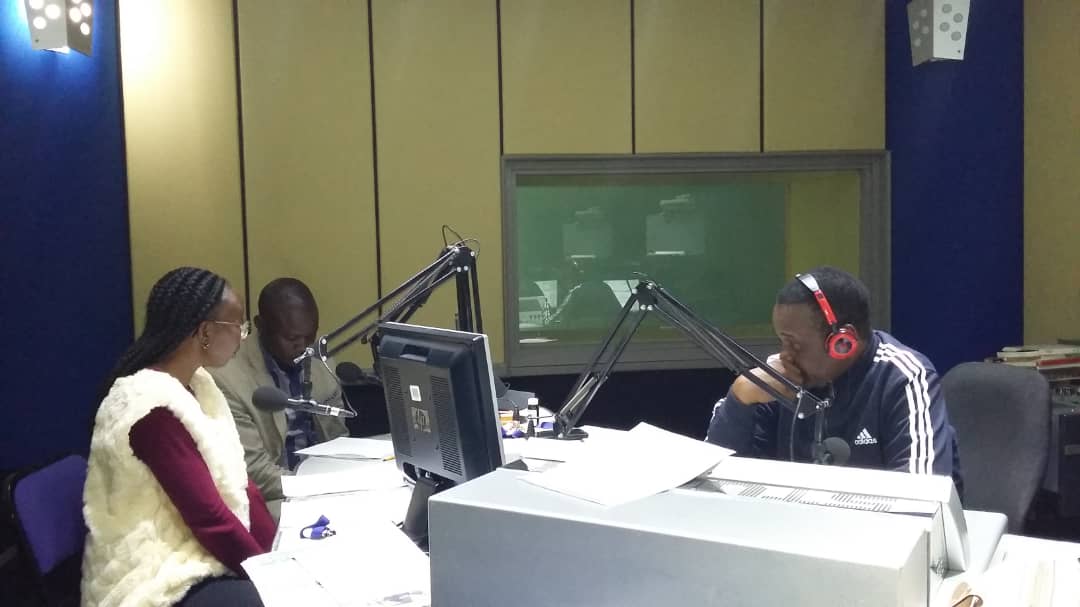ASSAR and Kati-FM launch climate change radio show in Namibia

ASSAR and Kati-FM have launched a special climate change radio show which airs every Monday until September 24, 2018. Ndamonako Anna Iita reports back on the first edition.
To encourage public dialogue on climate change in Namibia, the Adaptation at Scale in Semi-Arid Regions (ASSAR) project on Monday, July 30, launched a special climate change radio series with national broadcaster Kati-FM, one of Namibia’s most popular stations.

Namibia is the driest country south of the Sahara and is highly vulnerable to the impacts of climate change.
The radio show airs every Monday between 7 and 8 p.m. and runs until September 24, 2018. It is broadcast in Oshiwambo, one of Namibia’s local languages, which is commonly spoken in the Omusati region in northern Namibia where ASSAR conducts its research.
The show is a live discussion broadcast from capital city Windhoek that reaches listeners in northern Namibia, an area already feeling the effects of climate change. In recent years this region has started to experience extreme weather events, like droughts and floods, more often than in the past.
Over the coming weeks the series will share ASSAR’s research findings from Onesi constituency in Omusati. The debut show on Monday gave an introductory session on climate change. Kati-FM’s veteran presenter “Maria Maria” was joined in studio by myself, Ndamonako Anna Iita from the Desert Research Foundation of Namibia, and Sion Shifa, an expert from the Ministry of Environment and Tourism. Shifa shared government insights on climate change and provided a legal adaptation framework perspective.
Listeners called in to air their views and ask questions about climate change. Since climate change is getting worse, they wanted to know if government has any plans for water harvesting and if the project can provide funding for rehabilitation of wells. Another question asked was if the ASSAR project can provide predictions on anticipated climatic change and how such information will reach those in remote areas. Others wanted to know where communities can purchase drought-resistant seeds and how communities can adapt to climate change. Callers also wanted to know about the ASSAR findings and the implications these have for Namibians.
ASSAR looks forward to further audience engagement in future and to sharing its findings more broadly.
Subsequent shows will discuss topics including the enablers of climate adaptation in Namibia, drought management, new agricultural practices to help deal with climate change and more. Scheduled guests include officials from the Ministry of Agriculture, Water and Forestry, and the Office of the Prime Minister.
All editions of the Kati FM climate change radio show can be listened to using the links below:
- Introductory session to climate change
- Adopting new agricultural practices
- Communicating climate change for adaptation
- Drought
- Drought management.
- Gender and climate vulnerabilities
- The role of religion and tradition in climate change adaptation
- The value of livestock
- What enables climate change adaptation in Namibia?
Ndamonako Anna Iita is a media graduate from the University of Namibia who is currently working at the Namibian Broadcasting Corporation as a freelance indigenous language news presenter, producing news stories and presenting them every Monday at 5 p.m. She is employed by the Desert Research Foundation of Namibia on a two- month internship and is doing translations for the ASSAR project and co-hosting the ASSAR climate change radio series.
Photo credit: Bernadette N. Shalumbu-Shivute.